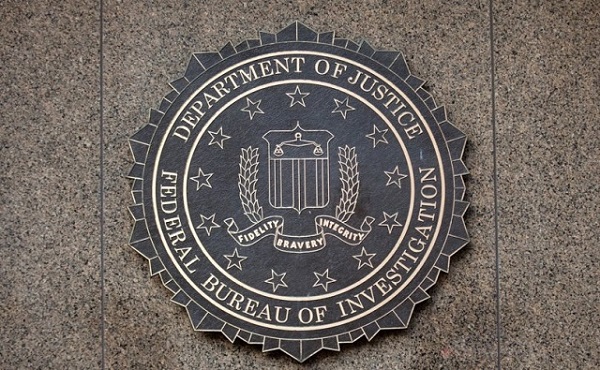Business
DOJ charges 7 Chinese spies with targeting US political leaders, major businesses

From LifeSiteNews
By Matt Lamb
The hackers ‘spent approximately 14 years targeting U.S. and foreign critics, businesses, and political officials’ as part of a massive Chinese espionage operation, according to the DOJ.
Hackers targeted defense contractors, American political leaders, and U.S. companies with malware as part of a surveillance operation for the Chinese Communist Party, the Department of Justice (DOJ) alleges.
The DOJ released details on the indictment of seven Chinese individuals who have been charged with “conspiracy to commit computer intrusions and conspiracy to commit wire fraud,” according to a Monday news release.
The individuals are part of a People’s Republic of China (PRC) group who “spent approximately 14 years targeting U.S. and foreign critics, businesses, and political officials in furtherance of the PRC’s economic espionage and foreign intelligence objectives,” according to the DOJ.
Officials unsealed the indictment on Monday, though charges were originally filed in January.
The indictment provides further insight into how the CCP targets American companies and political leaders for retribution and influence using computer viruses.
The CCP and its Ministry of State Security “sought to obtain information on political, economic and security policies that might affect the PRC, along with military, scientific and technical information of value to the PRC,” the indictment states. “Among other things, the MSS and its state security departments focused on surreptitiously identifying and influencing the foreign policy of other countries, including the United States.”
The hackers used a front company called Wuhan XRZ beginning in at least 2010. They would send fake emails to U.S. senators, business leaders, and information technology companies looking to gain access. They were successful in hacking defense contractors, information technology providers, and universities, among other victims.
The DOJ itself was targeted, along the Commerce Department, the Treasury Department, and the White House.
The Justice Department alleges:
These computer network intrusion activities resulted in the confirmed and potential compromise of work and personal email accounts, cloud storage accounts and telephone call records belonging to millions of Americans, including at least some information that could be released in support of malign influence targeting democratic processes and institutions, and economic plans, intellectual property, and trade secrets belonging to American businesses, and contributed to the estimated billions of dollars lost every year as a result of the PRC’s state-sponsored apparatus to transfer U.S. technology to the PRC.
The “Conspirators,” as they are called in the filing, began sending out phishing emails in at least 2015, according to the DOJ. The emails would look like they were from “prominent American journalists” with excerpts from news sites.
“If the recipient activated the tracking link by opening the email, information about the recipient, including the recipient’s location, IP addresses, network schematics and specific devices used to access the pertinent email accounts, was transmitted to a server controlled by the Conspirators,” the DOJ stated. “The Conspirators used this method to enable more direct and sophisticated targeting of recipients’ home routers and other electronic devices, including those of high ranking U.S. government officials and politicians and election campaign staff from both major U.S. political parties.”
In just a few months in 2018, the hackers “sent more than 10,000 malicious email messages” to “high-ranking U.S. government officials and their advisors, including officials involved in international policy and foreign trade issues.”
They also targeted campaign staff for “a presidential campaign” in 2020. The filing does not state which campaign.
European Union and United Kingdom leaders who were part of the anti-Communist Inter Parliamentary Alliance on China were also targeted.
Other victims included: “a nuclear power engineering company,” a defense contractor, an aerospace contractor, and “a leading American manufacturer of software and computer services based in California.”
Telecommunications companies, law firms, and steel companies were also targeted.
The CCP impersonated real steel companies in order to gain access to their emails during a battle over tariffs on China. After the Trump administration announced new steel tariffs in 2018, the hackers “registered a malicious domain impersonating the legitimate domain of one of the largest steel producers in the United States (the ‘American Steel Company’)” as well as the International Steel Trade Forum.
“These malicious domains allowed the Conspirators to communicate with malware they installed on the network of the American Steel Company to access and surveil the victim,” the DOJ stated.
They also targeted the Norwegian government in 2018 because it was considering awarding the Nobel Prize to Hong Kong democracy activists.
The PRC is a “malicious nation state,” a federal prosecutor stated in the DOJ news release.
“These allegations pull back the curtain on China’s vast illegal hacking operation that targeted sensitive data from U.S. elected and government officials, journalists, and academics; valuable information from American companies; and political dissidents in America and abroad. Their sinister scheme victimized thousands of people and entities across the world, and lasted for well over a decade,” U.S. Attorney Breon Peace for the Eastern District of New York stated in the news release.
“America’s sovereignty extends to its cyberspace. Today’s charges demonstrate my office’s commitment to upholding and protecting that jurisdiction, and to putting an end to malicious nation state cyber activity.”
Business
Nearly One-Quarter of Consumer-Goods Firms Preparing to Exit Canada, Industry CEO Warns Parliament

Standing Committee on Industry and Technology hears stark testimony that rising costs and stalled investment are pushing companies out of the Canadian market.
There’s a number that should stop this country cold: twenty-three percent. That is the share of companies in one of Canada’s essential manufacturing and consumer-goods sectors now preparing to withdraw products from the Canadian market or exit entirely within the next two years. And this wasn’t whispered at a business luncheon or buried in a consultancy memo. It was delivered straight to Parliament, at the House of Commons Standing Committee on Industry and Technology, during its study on Canada’s underlying productivity gaps and capital outflow.
Michael Graydon, the CEO of Food, Health & Consumer Products of Canada, didn’t hedge or soften the message. He told MPs, “23% of our members expect to exit products from the Canadian marketplace within the next two years, because the cost of doing business here has just become unsustainable.”
Unsustainable. That’s the word he used. And when the people who actually make things in this country start using that word, you should pay attention. These aren’t fringe players or hypothetical startups. These are firms that supply the goods Canadians buy every single day, and they’re looking at their balance sheets, their regulatory burdens, the delays in getting anything approved or built, and concluding that Canada simply doesn’t work for them anymore.
What makes this more troubling is the timing. Canada’s investment levels have been falling for years, even as the United States and other competitors race ahead. Businesses aren’t reinvesting in machinery or technology at the rate they once did. They’re not modernizing their operations here. They’re putting expansion plans on hold or shifting them to jurisdictions that move faster, cost less and offer clearer rules. That’s not ideology; it’s arithmetic. If it costs more to operate here, if it takes longer to get a permit, and if supply chains back up because ports and rail lines are jammed, investors will choose the place that doesn’t make growth a bureaucratic mountain climb.
Graydon raised another point that ought to concern anyone who cares about domestic production. Canada’s agrifood sector recorded a sixty-billion-dollar trade surplus last year, one of the brightest spots in the national economy, but according to him that potential is being “diluted by fragmented interprovincial trade and logistics bottlenecks.” The ports, the rail corridors, the entire transport network—choke points everywhere. And you can’t build a productive economy on choke points. Companies can’t scale, can’t guarantee delivery, can’t justify the costs. So they leave.
This twenty-three percent figure is the clearest evidence yet that the problem isn’t theoretical. It’s not something for think-tank panels or academic papers. It is happening at the level that matters most: the decision whether to continue doing business in Canada or move operations somewhere more predictable. And once those decisions are made, they’re very hard to reverse. Capital doesn’t boomerang back out of patriotism. It goes where it can earn a return.
For years, Canadian policymakers have talked about productivity as if it were a moral failing of workers or a mystical national characteristic. It’s neither. Productivity comes from investment—real money poured into equipment, technology, training and expansion. When investment stalls, productivity collapses. And when a quarter of firms in a major sector are already planning their exit, you are not looking at a temporary dip. You are looking at a structural rejection of the business environment itself.
The fact that executives are now openly warning Parliament that they cannot afford to stay is a moment of clarity. It is also a test. Either this country becomes a place where people can build things again—quickly, affordably, competitively—or it continues down the path that leads to empty factories, hollowed-out supply chains and consumers who wonder why the shelves look thinner every year.
Twenty-three percent is not just a statistic. It’s the sound of a warning bell ringing at full volume. The only question now is whether anyone in charge hears it.
Business
Climate Climbdown: Sacrificing the Canadian Economy for Net-Zero Goals Others Are Abandoning

By Gwyn Morgan
Canada has spent the past decade pursuing climate policies that promised environmental transformation but delivered economic decline. Ottawa’s fixation on net-zero targets – first under Justin Trudeau and now under Prime Minister Mark Carney – has meant staggering public expenditures, resource project cancellations and rising energy costs, all while failing to
reduce the country’s dependence on fossil fuels. Now, as key international actors reassess the net-zero doctrine, Canada stands increasingly alone in imposing heavy burdens for negligible gains.
The Trudeau government launched its agenda in 2015 by signing the Paris Climate Agreement aimed at limiting the forecast increase in global average temperature to 1.5°C by the end of the century. It followed the next year with the Pan-Canadian Framework on Clean Growth and Climate Change that imposed more than 50 measures on the economy, key among them a
carbon “pricing” regime – Liberal-speak for taxes on every Canadian citizen and industry. Then came the 2030 Emissions Reduction Plan, committing Canada to cut greenhouse gas emissions to 40 percent below 2005 levels by 2030, and to achieve net-zero by 2050. And then the “On-Farm Climate Action Fund,” the “Green and Inclusive Community Buildings Program” and the “Green Municipal Fund.”
It’s a staggering list of nation-impoverishing subsidies, taxes and restrictions, made worse by regulatory measures that hammered the energy industry. The Trudeau government cancelled the fully-permitted Northern Gateway pipeline, killing more than $1 billion in private investment and stranding hundreds of billions of dollars’ worth of crude oil in the ground. The
Energy East project collapsed after Ottawa declined to challenge Quebec’s political obstruction, cutting off a route that could have supplied Atlantic refineries and European markets. Natural gas developers fared no better: 11 of 12 proposed liquefied natural gas export terminals were abandoned amid federal regulatory delays and policy uncertainty. Only a single LNG project in Kitimat, B.C., survived.
None of this has had the desired effect. Between Trudeau’s election in 2015 and 2023, fossil fuels’ share of Canada’s energy supply actually increased from 75 to 77 percent. As for saving the world, or even making some contribution towards doing so, Canada contributes just 1.5 percent of global GHG emissions. If our emissions went to zero tomorrow, the emissions
growth from China and India would make that up in just a few weeks.
And this green fixation has been massively expensive. Two newly released studies by the Fraser Institute found that Ottawa and the four biggest provinces have either spent or foregone a mind-numbing $158 billion to create just 68,000 “clean” jobs – an eye-watering cost of over $2.3 million per job “created”. At that, the green economy’s share of GDP crept up only 0.3
percentage points.
The rest of the world is waking up to this folly. A decade after the Paris Agreement, over 81 percent of the world’s energy still comes from fossil fuels. Environmental statistician and author Bjorn Lomborg points out that achieving global net-zero by 2050 would require removing the equivalent of the combined emissions of China and the United States in each of the next five
years. “This puts us in the realm of science fiction,” he wrote recently.
In July, the U.S. Department of Energy released a major assessment assembled by a team of highly credible climate scientists which asserted that “CO 2 -induced warming appears to be less damaging economically than commonly believed,” and that aggressive mitigation policies might be “more detrimental than beneficial.” The report found no evidence of rising frequency or severity of hurricanes, floods, droughts or tornadoes in U.S. historical data, while noting that U.S. emissions reductions would have “undetectably small impacts” on global temperatures in any case.
U.S. Energy Secretary Chris Wright welcomed the findings, noting that improving living standards depends on reliable, affordable energy. The same day, the Environmental Protection Agency proposed rescinding the 2009 “endangerment finding” that had designated CO₂ and other GHGs as “pollutants.” It had led to sweeping restrictions on oil and gas development and fuelled policies that the current administration estimates cost the U.S. economy at least US$1 trillion in lost growth.
Even long-time climate alarmists are backtracking. Ted Nordhaus, a prominent American critic, recently acknowledged that the dire global warming scenarios used by the Intergovernmental Panel on Climate Change rely on implausible combinations of rapid population growth, strong economic expansion and stagnant technology. Economic growth typically reduces population increases and accelerates technological improvement, he pointed out, meaning emissions trends will likely be lower than predicted. Even Bill Gates has tempered his outlook, writing that climate change will not be “cataclysmic,” and that although it will hurt the poor, “it will not be the only or even the biggest threat to their lives and welfare.” Poverty and disease pose far greater threats and resources, he wrote, should be focused where they can do the most good now.
Yet Ottawa remains unmoved. Prime Minister Carney’s latest budget raises industrial carbon taxes to as much as $170 per tonne by 2030, increasing the competitive disadvantage of Canadian industries in a time of weak productivity and declining investment. These taxes will not measurably alter global emissions, but they will deepen Canada’s economic malaise and
push production – and emissions – toward jurisdictions with more lax standards. As others retreat from net-zero delusions, Canada moves further offside global energy policy trends – extending our country’s sad decline.
The original, full-length version of this article was recently published in C2C Journal.
Gwyn Morgan is a retired business leader who has been a director of five global corporations.
-

 Alberta2 days ago
Alberta2 days agoCalgary mayor should retain ‘blanket rezoning’ for sake of Calgarian families
-

 Bruce Dowbiggin1 day ago
Bruce Dowbiggin1 day agoSports 50/50 Draws: Make Sure You Read The Small Print
-

 Alberta1 day ago
Alberta1 day agoAlberta Offers Enormous Advantages for AI Data Centres
-

 espionage2 days ago
espionage2 days agoTrump says release the Epstein files
-

 COVID-191 day ago
COVID-191 day agoNew report warns Ottawa’s ‘nudge’ unit erodes democracy and public trust
-

 Censorship Industrial Complex1 day ago
Censorship Industrial Complex1 day agoQuebec City faces lawsuit after cancelling Christian event over “controversial” artist
-

 Alberta1 day ago
Alberta1 day agoNational Crisis Approaching Due To The Carney Government’s Centrally Planned Green Economy
-

 Alberta23 hours ago
Alberta23 hours agoSylvan Lake football coach fired for opposing transgender ideology elected to town council











